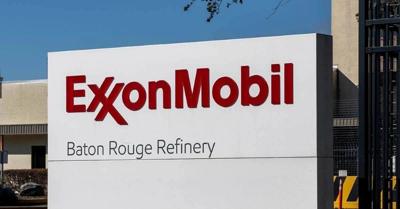
BATON ROUGE, La. – ExxonMobil wants a lawsuit filed in a Louisiana state court moved to federal court, arguing the plaintiffs’ personal injury and property damage claims against it were a result of activities “undertaken at the direction of federal officers.”
The largest U.S.-based oil and gas company, in its Oct. 17 notice, requests the lawsuit be removed from the 19th Judicial District Court, East Baton Rouge Parish in Louisiana, to the U.S. District Court for the Middle District of Louisiana.
Defendants Exxon Mobil Corporation, or EMC, and ExxonMobil Pipeline Company LLC, or EMPC, said it is “clear” the plaintiffs’ claims “implicate wartime and national emergency activities.”
“Plaintiffs’ new theory that Melville Pumping Station operations and related pipelines were an ‘arm’ of the Baton Rouge Refinery and were ‘inseparable’ from the operations at the Baton Rouge Refinery, reveal federal officer jurisdictional grounds that were not ‘affirmatively revealed on the face’ of Plaintiffs’ initial pleadings (which made no mention of any connection between the operations at the Melville Pumping Station and Baton Rouge Refinery),” the 24-page removal notice states.
The lawsuit involves claims for personal injuries and property damage allegedly connected to ExxonMobil’s operation of the Melville Pumping Station in Melville, St. Landry Parish, Louisiana in the early 20th Century.
According to the company, the Melville Pumping Station was a crude oil pumping station that operated from approximately 1912 to 1952 in support of the trunkline that transported crude oil to the Anchorage terminal in Baton Rouge.
The plaintiffs are residents of and neighbors to the Standard Heights Subdivision, located on the former Melville Pumping Station property.
In an amended petition, the plaintiffs allege the operation of the pumping station resulted in contamination of the subject property and their alleged exposure to the contamination.
ExxonMobil points out that since the lawsuit’s inception, the plaintiffs’ claims have “centered exclusively” on the operations of the pumping station and the trunkline that the station serviced during its operation.
Then, in a Sept. 29 filing, the plaintiffs produced expert reports to ExxonMobil, including the report of professional geoscientist and engineer Richard C. Bost of Astra-I2M LLC. The company refers to it as the “Bost Report.”
The report alleges operations at the Melville Pumping Station and trunkline are “inseparable” from operations at the Baton Rouge Refinery, and that both the Melville Pumping Station and the trunkline were operated as “arms” of the refinery.
ExxonMobil notes the operations at the refinery, as implicated by the plaintiffs’ claims, occurred amid the U.S.’s involvement in both World War II and the Korean War.
During those years – 1941-1945 and 1950-1953 – operations at the refinery were “directed and controlled” by the federal government, the company argues.
“Accordingly, the Bost Report reveals to ExxonMobil, for the first time, that the Plaintiffs’ claims challenge federally directed and controlled activities, thereby giving rise to jurisdiction under the federal officer removal statute,” its removal notice states.
Under the federal officer removal statute, lawsuits against federal officers “may be removed despite the non-federal cast of the complaint.”
As ExxonMobil explains in its filing – referencing a 2006 ruling by the U.S. Court of Appeals for the Ninth Circuit in Durham v. Lockheed Martin Corp. – unlike other defendants, a federal officer can remove a case “even if the plaintiff couldn’t have filed the case in federal court in the first instance.”
The company argues that World War II, in particular, was a “unique period” for not just the country, but for the oil and gas industry specifically.
During that time, wartime emergencies forced strict control of every phase of the industry. Like many others, the petroleum industry mostly turned over its facilities to the government.
“To meet the wartime need for crude oil and refined petroleum products, President Roosevelt issued Execute [sic] Order 9276 creating the Petroleum Administration for War (‘PAW’) to, among other things, issue and take appropriate action to enforce directives to the petroleum industry to ‘[p]rovide adequate supplies of petroleum for military, or other essential uses,’” ExxonMobil’s notice explains.
The company contends it has a “colorable federal defense,” namely the federal contractor defense
“ExxonMobil is entitled to derivative federal immunity because the actions (operations at the Baton Rouge Refinery) causing the alleged harm (the alleged contamination of the property and alleged exposure of the Plaintiffs) were taken pursuant to contracts with the federal government (the WWII/Korean War era contracts) for the purpose of furthering federal projects (the production of avgas and other petroleum products for the war effort),” the notice states.
Baton Rouge law firm Bienvenu Foco & Viator LLC is representing ExxonMobil in the action.






